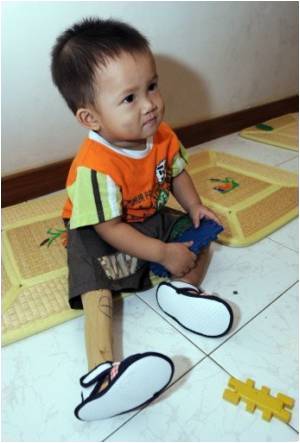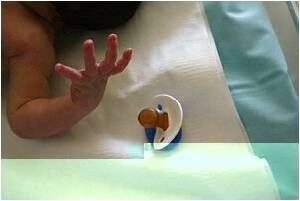Nine-month-old babies grasp number, space and time concepts in more complex ways than previously realised, a new study shows.

Neuroscientist Matthew Longo of University College London was also a part of the project.
Lourenco said: "We've shown that 9-month-olds are sensitive to 'more than' or 'less than' relations across the number, size and duration of objects. And what's really remarkable is they only need experience with one of these quantitative concepts in order to guess what the other quantities should look like."
In his 1890 masterwork, "The Principles of Psychology," William James described the baby's impression of the world as "one great blooming, buzzing confusion."
Accumulating evidence is turning that long-held theory on its head.
Lourenco said: "Our findings indicate that humans use information about quantity to organize their experience of the world from the first few months of life.
Lourenco focused on the development of spatial perception, and how it interfaces with other cognitive dimensions, such as numerical processing and the perception of time.
Tests show, for instance, that adults associate smaller numbers with the left side of space and larger numbers with the right.
"It's like we have a ruler in our heads," Lourenco said of the phenomenon.
Other tests show that when adults are asked to quickly select the higher of two numbers, the task becomes much harder if the higher number is represented as physically smaller than the lower number.
Lourenco wanted to explore whether our brains just pick up on statistical regularities through repeated experience and language associations, or whether a generalized system of magnitude is present early in life.
Her lab designed a study that showed groups of objects on a computer screen to 9-month-old infants.
She said: "Babies like to stare when they see something new and we can measure the length of time that they look at these things to understand how they process information."
When the infants were shown images of larger objects that were black with stripes and smaller objects that were white with dots, they then expected the same color-pattern mapping for more-and-less comparisons of number and duration.
For instance, if the more numerous objects were white with dots, the babies would stare at the image longer than if the objects were black with stripes.
Lourenco said: "When the babies look longer, that suggests that they are surprised by the violation of congruency.
"They appear to expect these different dimensions to correlate in the world."
The findings suggest that humans may be born with a generalized system of magnitude.
Lourenco said: "If we are not born with this system, it appears that it develops very quickly.
"Either way, I think it's amazing how we use quantity information to make sense of the world."
Source-ANI
 MEDINDIA
MEDINDIA



 Email
Email




